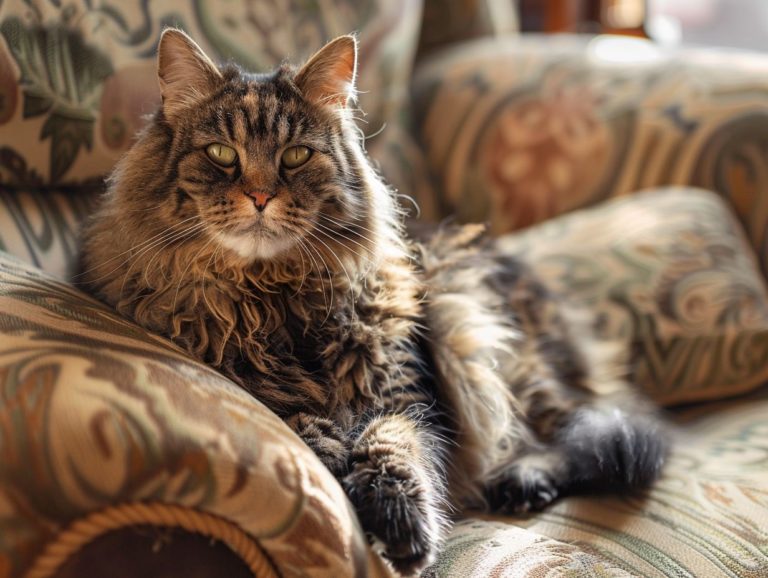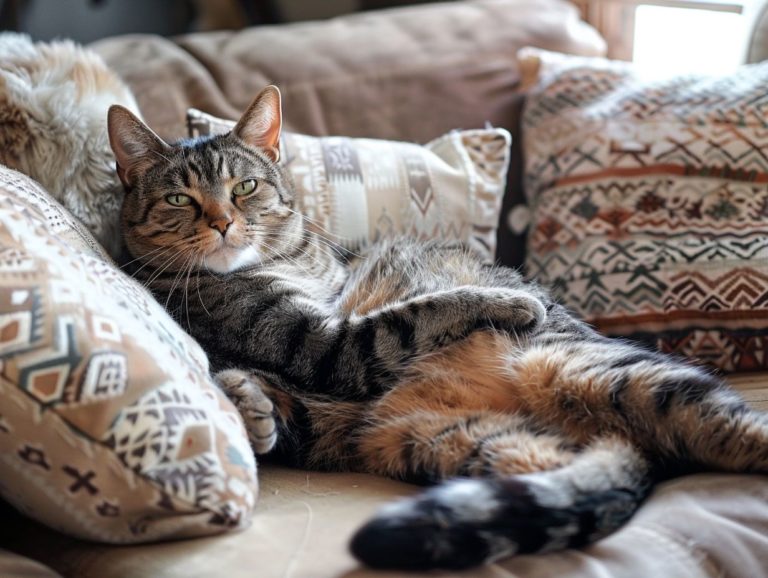Chronic Conditions And Indoor Cat Insurance
Chronic conditions have a significant negative impact on the health and quality of life of indoor cats. This article will discuss the various types of chronic conditions that affect indoor cats and emphasize the importance of having the appropriate insurance coverage. It will explore why indoor cats are susceptible to these conditions, ways to prevent and manage these chronic diseases, and offer guidance on selecting the right insurance policy to safeguard your indoor cat’s health.
Key Takeaways:
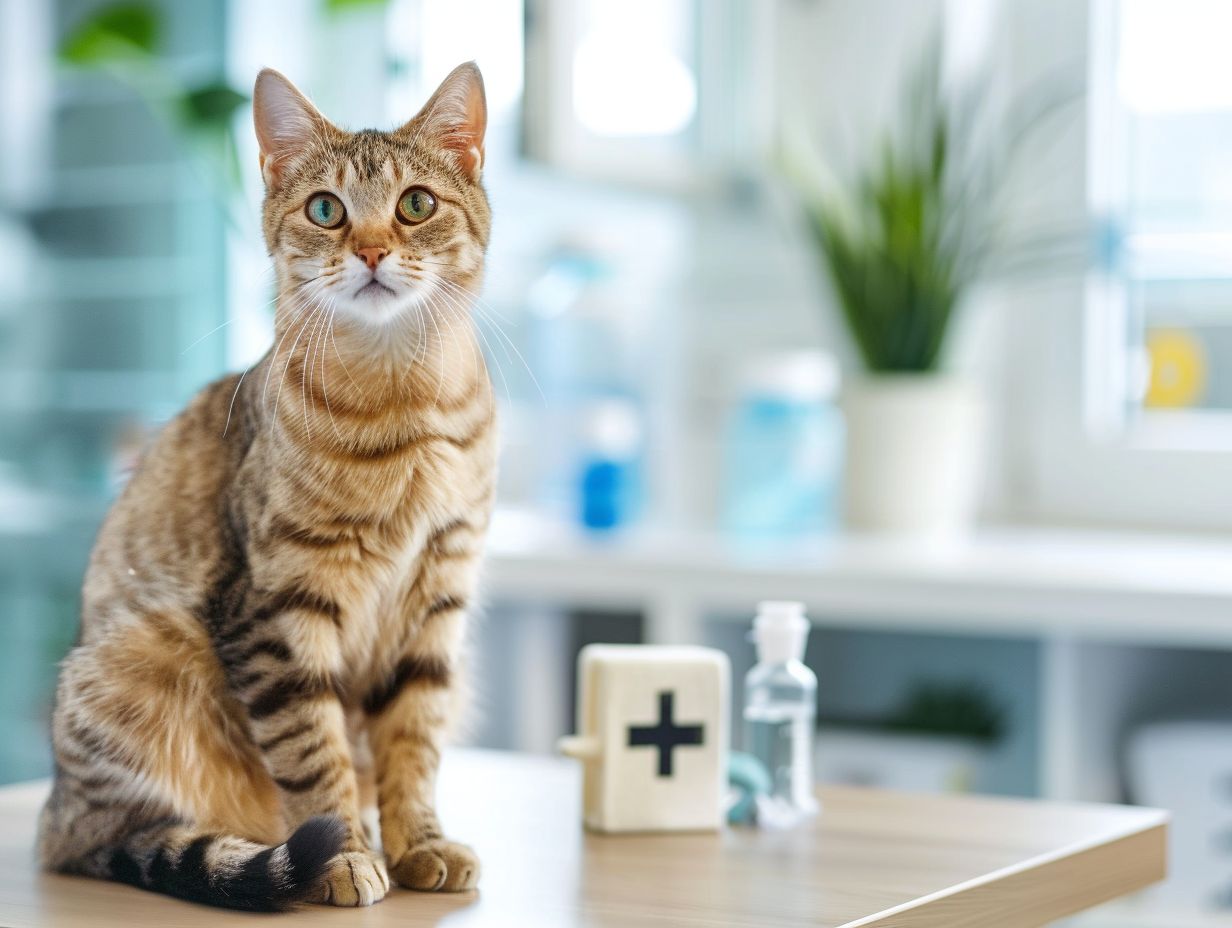
Understanding Chronic Conditions in Cats
Chronic Conditions in Cats refer to long-lasting health problems that permanently impact feline well-being. These conditions can range from treatable diseases to more severe, incurable afflictions that necessitate specialized care and attention. Common chronic conditions in cats include kidney disease, diabetes, hyperthyroidism, and inflammatory bowel disease.
Treatments vary for these conditions, with diabetes often requiring insulin injections and a special diet, while medication and dietary changes are commonly used to manage kidney disease. Managing chronic conditions is crucial for preserving a cat’s quality of life and preventing complications. Curable chronic conditions, such as infections or certain skin issues, can often be addressed and resolved with medications. However, incurable conditions like feline leukemia or chronic renal failure typically demand ongoing supportive care to alleviate symptoms and prolong the cat’s life.
Common Chronic Conditions and Their Impact
Common chronic conditions in cats include dental disease, age-related diseases, cancer, and other health issues that require ongoing medical treatment and support. The severity of these conditions can vary, but they can all reduce the quality of life in a cat, and they require the pet owner to provide appropriate medical management.
Dental diseases in cats are most often caused by periodontal disease, leading to pain, abscesses, and tooth loss in advanced cases. Dental disease can make it difficult for cats to eat and cause substantial discomfort.
Age-related diseases, such as arthritis, can be degenerative and cause a decline in the quality of life. Arthritis can result in pain, lameness, and mobility issues, making it challenging for cats to move around comfortably.
Cancer in cats can manifest in various ways, with treatment often involving surgery, chemotherapy, or radiation therapy.
The medical management of these chronic conditions often includes medications, dietary changes, and regular veterinary examinations, which can present both financial and emotional challenges for the pet owner.
The Importance of Indoor Cat Insurance
Indoor Cat Insurance is important for providing financial protection to pet owners against unexpected veterinary bills and expenses that may arise from medical emergencies. This insurance offers coverage tailored to the unique health care conditions that indoor cats may face.
A growing number of pet owners in the US, Canada, and the UK are opting for Indoor Cat Insurance to ensure their indoor cats are financially safeguarded from unforeseen health care issues.
Since indoor cats are more prone to conditions like obesity and diabetes, they are also at a higher risk of developing related health issues. Having the appropriate insurance coverage in place can make veterinary checkups, diagnostic tests, and treatment for these conditions more affordable.
Indoor cat insurance typically includes coverage for emergencies such as accidental poisoning or sudden illnesses, providing owners with the assurance that they can provide prompt and necessary care without worrying about financial burdens.
Why Indoor Cats are at Risk for Chronic Conditions
Chronic conditions in indoor cats can be attributed to several factors, including lack of exercise, genetic predispositions common in certain breeds or family lines, and the potential for health issues linked to indoor environments to become chronic over time.
Indoor cats may not engage in sufficient physical activity due to the absence of outdoor roaming, which can result in obesity and related health complications. The constant indoor confinement may exacerbate genetic conditions that are aggravated by a lack of exposure to fresh air and sunlight. The constrained environment of a residence or apartment may contribute to respiratory issues, obesity, and stress-related disorders in indoor cats.
Coverage for Chronic Conditions in Indoor Cat Insurance
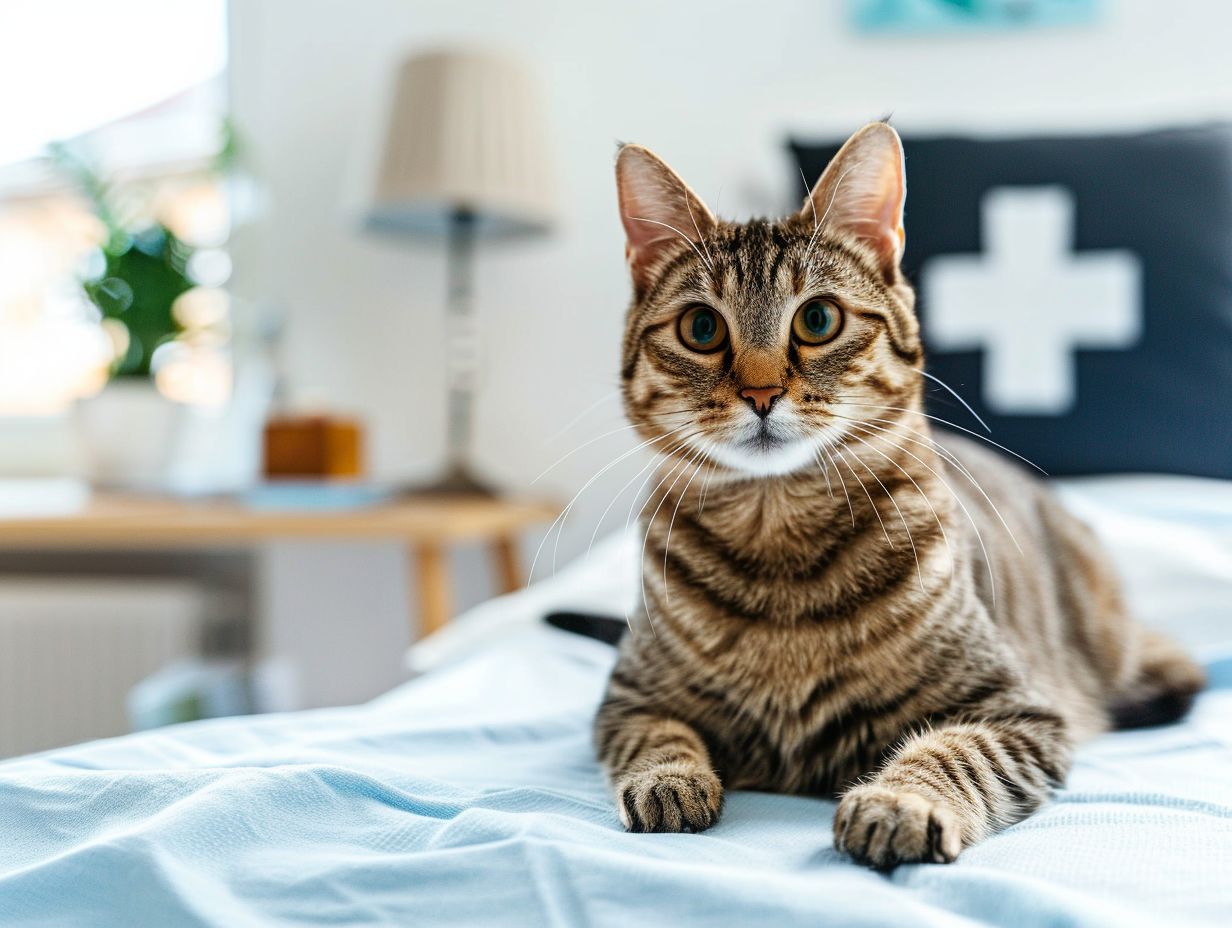
The Chronic Condition Coverage in Indoor Cat Insurance offers financial assistance to pet owners for the ongoing treatment, diagnostic testing, and medical care of chronic illnesses. A good policy will cover both curable and incurable conditions common to indoor cats. This coverage is crucial for indoor cats as they are often more susceptible to chronic conditions due to their sedentary nature and reduced exposure to outdoor factors.
Treatments covered by such policies may include medications, specialized diets, regular veterinary visits, and customized therapies to manage long-term health problems. Having a policy with coverage for chronic conditions ensures that pet owners are prepared for the financial commitment of caring for a cat with ongoing healthcare needs. It is essential to choose a comprehensive plan with multiple benefits to ensure that the diverse healthcare needs of indoor cats are adequately supported.
What to Look for in a Policy
When selecting an Indoor Cat Insurance policy, considerations include the availability of coverage providers in the area, policy expenses, exclusions for chronic conditions, and the financial protection offered by the policy. Comparing different policies can help in finding the ideal coverage for a cat’s specific health concerns.
Another important aspect to consider is the reimbursement process, as understanding the process and the timeframe for reimbursements can significantly impact the ability to manage unexpected veterinary expenses. Pet owners should also assess whether the policy covers emergency care, hospitalization, diagnostics, and prescription medications, while being mindful of any limits or caps that may exist for certain treatments or procedures to avoid surprises when making a claim.
Preventing Chronic Conditions in Indoor Cats
Preventing chronic conditions in indoor cats involves proactive health management, regular veterinary check-ups, a balanced diet, and creating a safe indoor environment that promotes feline well-being. Preventive care is the most effective strategy for reducing the incidence of chronic diseases in indoor cats.
Regular physical activity is crucial for preventing obesity and obesity-related diseases, so pet owners should offer opportunities for their indoor cats to play and exercise. Maintaining a clean litter box and ensuring they receive enough fluids are vital aspects of overall health maintenance.
Providing stimulating environments with toys, scratching posts, and comfortable resting places can prevent behavioral and emotional problems that may arise in indoor cats due to a lack of mental and physical stimulation.
Tips for Maintaining Your Cat’s Health
Maintaining your cat’s health involves preventing age-related diseases, ensuring regular veterinary care, practicing dental disease prevention, and promptly treating any health issues that may arise. Providing proper care for indoor cats is essential for their overall well-being.
It is crucial to be aware of age-related diseases such as kidney disease, diabetes, arthritis, and dental issues as cats age. Regular veterinary check-ups play a key role in the early detection of these conditions. Although often overlooked, dental disease is critical to a cat’s overall health. Brushing your cat’s teeth and offering dental treats or toys can help prevent periodontal disease. Prompt treatment of any health problems that arise is vital for maintaining your cat’s overall health.
Managing Chronic Conditions in Indoor Cats
Managing chronic conditions in indoor cats involves developing a personalized care plan, following veterinary instructions, monitoring the cat’s health, and providing care and comfort for long-term health issues. With proper management, pet owners can enhance the quality of life for an indoor cat, even if it is dealing with a long-term health condition.
By creating a personalized care plan tailored to the specific needs of the indoor cat, owners can address chronic conditions more effectively. This plan may encompass medication schedules, dietary modifications, and environmental adjustments to ensure the cat’s well-being. Regular check-ups and monitoring of the cat’s health parameters such as weight, appetite, and behavioral changes are essential for tracking the progression of the illness. Consistent communication with the veterinarian is crucial for evaluating the effectiveness of the treatment plan and making necessary adjustments.
Providing emotional support and comfort to the cat through affection, play, and a stress-free environment can also play a role in managing chronic conditions and improving the overall quality of life for the feline companion.
Treatment Options and Care Strategies
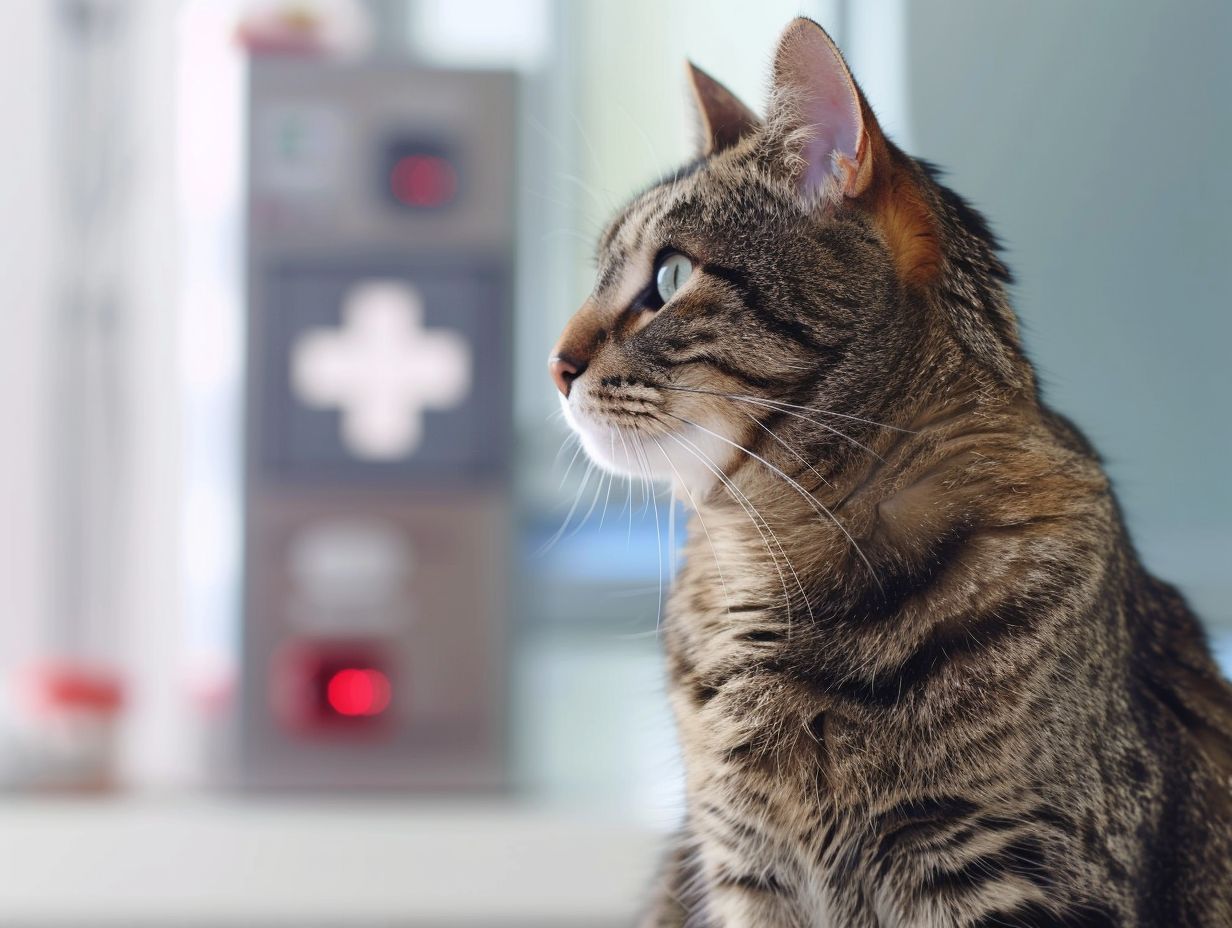
When considering Treatment Options and Care Strategies for chronic conditions in indoor cats, pet owners take into account specialized treatments, genetic predispositions, emergency vet visits, and ongoing care requirements. The key to effective management is to provide a customized treatment plan tailored to the cat’s unique healthcare needs.
Genetic conditions play a significant role in understanding and managing chronic health issues in indoor cats, with certain breeds often showing a predisposition to specific conditions that require targeted interventions. Emergency vet visits are essential in cases where immediate medical attention is necessary to prevent a deterioration of the cat’s condition.
Developing personalized care plans that include medication schedules, dietary modifications, and regular veterinary visits can significantly enhance the quality of life for indoor cats with chronic conditions.
Choosing the Right Indoor Cat Insurance
When choosing the right indoor cat insurance, key considerations include evaluating policy coverage, provider reputation, terms related to chronic conditions, and overall financial protection provided. Opting for a comprehensive insurance plan tailored specifically for indoor cats helps ensure that a pet’s health and care needs are adequately met.
One major factor to consider concerning indoor cat insurance is the extent of coverage for various medical expenses that indoor cats may face, such as accidents, illnesses, or emergency procedures. The policy should offer a broad range of coverage to help offset the costs of unforeseen health issues.
The reliability of the insurance provider is crucial. Selecting a well-established company with a reputation for prompt claims processing and excellent customer support can provide pet owners with a sense of security. Ultimately, the aim is to secure the best financial protection to safeguard the well-being of your indoor cat.
Factors to Consider When Selecting a Policy
When selecting an indoor cat insurance policy, important factors to consider include the pet owner’s financial considerations, coverage of chronic conditions, policy exclusions, and the reliability of insurance providers. These key factors ensure that the policy meets the specific needs of indoor cats for comprehensive feline health coverage.
Before choosing an indoor cat insurance policy, it is essential to closely examine the financial aspects of the policy, including monthly premiums, deductibles, and coverage limits, to ensure affordability and alignment with the pet owner’s financial resources. Evaluate the chronic conditions and cat health insurance whats covered coverage of the policy to ensure it includes comprehensive coverage for common ailments that indoor cats may face, such as urinary tract disease and obesity.
Review the terms and conditions of the policy for aspects like waiting periods, pre-existing conditions clauses, and exclusions, as these factors determine the extent of coverage provided. Additionally, thoroughly research the reliability and reputation of the insurance provider to ensure a smooth claims process, dependable customer support, and no surprises when policy coverage is required.
Frequently Asked Questions
What are chronic conditions in cats?
Chronic conditions in cats refer to long-term health issues that require ongoing management and treatment, such as diabetes, kidney disease, or arthritis.
Is indoor cat insurance necessary for cats with chronic conditions?
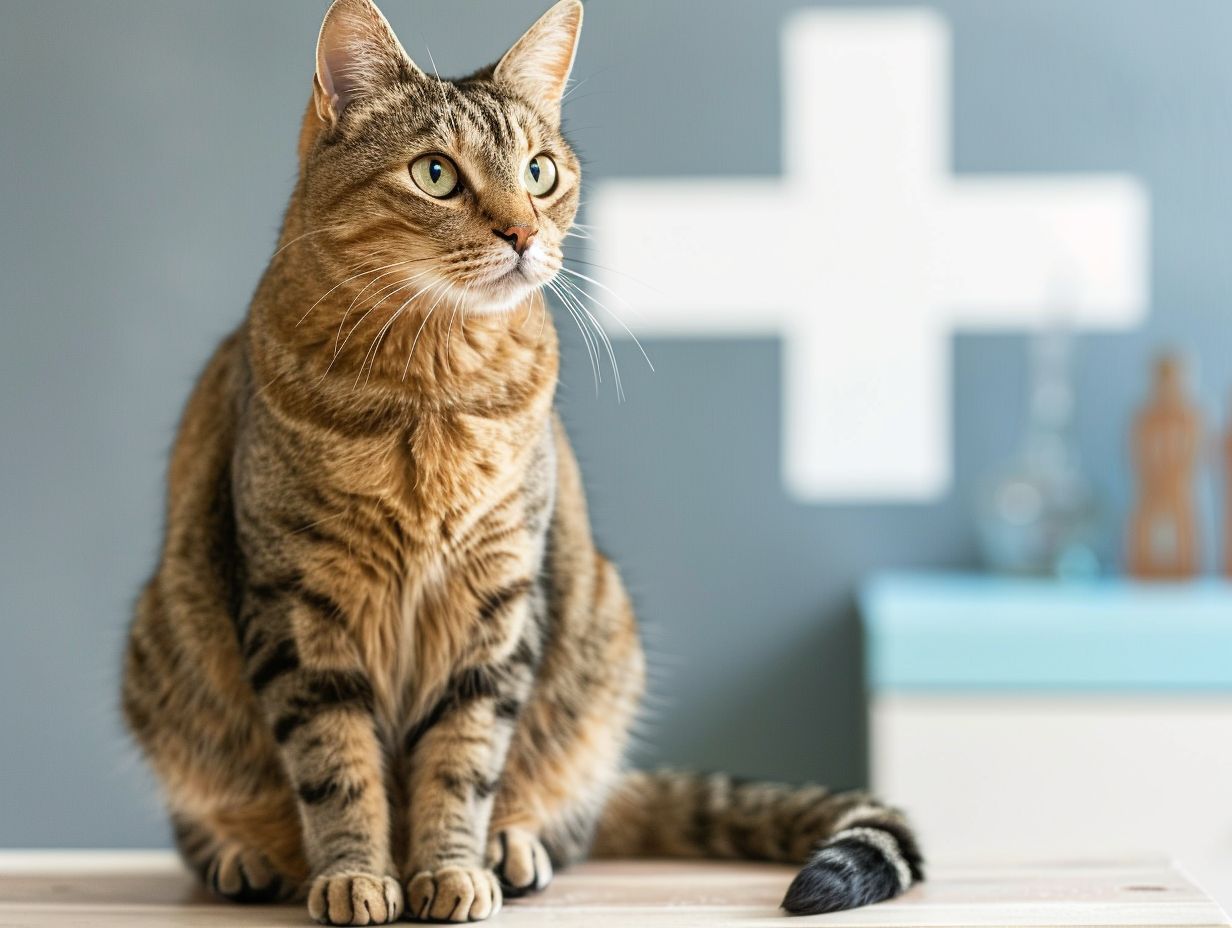
Yes, indoor cat insurance is important for all cats, especially those with chronic conditions. It can help cover the cost of treatments, medications, and regular check-ups for their long-term health needs.
Are chronic conditions in cats covered by all pet insurance plans?
Not all pet insurance plans cover chronic conditions, so it’s important to carefully review the policy and look for specific coverage for chronic conditions. Some plans may offer it as an add-on or as part of a more comprehensive plan.
Can I get insurance for my indoor cat if they already have a chronic condition?
Yes, you can still get insurance for your indoor cat even if they have a pre-existing chronic condition. However, it’s important to note that the condition may be excluded from coverage or have a waiting period before it is covered.
How can indoor cat insurance help with managing chronic conditions?
Indoor cat insurance can provide financial assistance for regular check-ups, medications, and treatments for chronic conditions. This can help ensure your cat receives the proper care they need for their long-term health needs.
What should I consider when choosing indoor cat insurance for a cat with chronic conditions?
When choosing insurance for a cat with chronic conditions, it’s important to consider the coverage for pre-existing conditions, waiting periods, and the overall coverage for chronic conditions. It’s also important to review the policy’s limits and exclusions to ensure it meets your cat’s specific needs.

